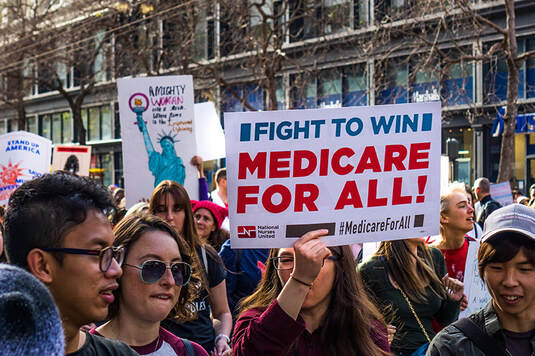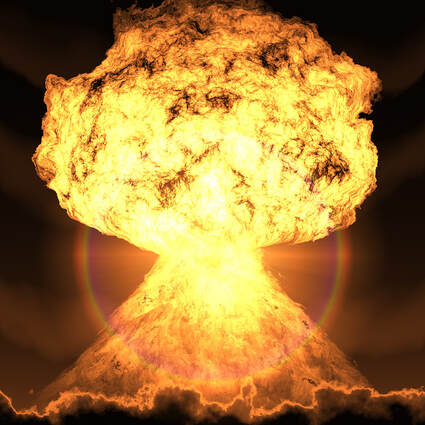|
Dean Baker Senior Economist at The Center for Economic and Policy Research (CEPR)  January 19, 2019 San Francisco / CA / USA - Participant to the Women's March event holds "Medicare for all" sign while marching on Market street in downtown San Francisco. Editorial credit: Sundry Photography / Shutterstock.com January 19, 2019 San Francisco / CA / USA - Participant to the Women's March event holds "Medicare for all" sign while marching on Market street in downtown San Francisco. Editorial credit: Sundry Photography / Shutterstock.com The push for universal Medicare was given new momentum by Bernie Sanders campaign for the 2016 Democratic nomination. While it is still quite far from becoming law in even an optimistic scenario, it is certainly now treated as a serious political position. This is probably best demonstrated by the fact that the Medicare for All (M4A) bill put forward by Washington representative Pramila Jayapal has 107 co-sponsors, nearly half of the Democratic caucus in the House. As much progress as M4A has made, it will still be a huge lift to get it implemented. A universal Medicare system would mean shifting somewhere around 8 percent of GDP ($1.6 trillion at 2019 levels) from the private system to a government-managed system. It would also mean reorganizing the Medicaid program and other government-run health care programs, as well as the Medicare program itself. The current system has large co-pays and many gaps in coverage, such as dental care, that most proponents of M4A would like to fill. It also has a large role for private insurers in the Medicare Advantage program, as well as the Part D prescription drug benefit.
0 Comments
Graham E. Fuller Former Senior CIA Official and former Vice Chairman of the National Intelligence Council at the CIA in charge of long-range strategic forecasting; Adjunct Professor of history at Simon Fraser University in Vancouver.  Illustration of a nuclear bomb explosion. (Credit: Flowgraph). Illustration of a nuclear bomb explosion. (Credit: Flowgraph). Membership in the nuclear club is jealously guarded. The fewer the members the better. And the latest member to work his way in the door invariably calls for the gates now to be locked behind him; no new members after me. There are good reasons for this. One is the world perceives that the less nukes around, the better; they are less likely to get used and surely that’s good for everybody. But the more realistic reason for keeping the club tiny is that no nuclear state wants to yield up any more power to any other ambitious states in the world than absolutely necessary, to preserve their own monopoly. And there is a theological issue among strategists about whether states going nuclear makes it more, or less likely that war will break out between them. So far, at least, that seems to be the case, even between the unstable nuclear states of Pakistan and India. But who knows what the future will bring? |
Be our guest.
Interested in being featured on our blog? We'd love to hear from you. Find out more. ARCHIVES
May 2023
CATEGORIES |
Copyright © 2023 The Zambakari Advisory - Privacy Policy
Our site uses cookies to improve your experience. You can control cookies by adjusting your browser or device settings.
If you continue without changing your settings, we assume that you are happy to receive all cookies.
If not, please feel free to opt out here.
SEO by Qasim Khilji
Our site uses cookies to improve your experience. You can control cookies by adjusting your browser or device settings.
If you continue without changing your settings, we assume that you are happy to receive all cookies.
If not, please feel free to opt out here.
SEO by Qasim Khilji
